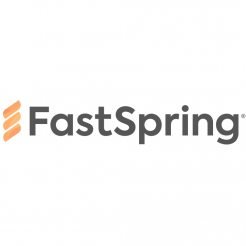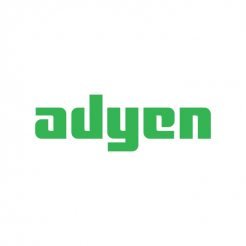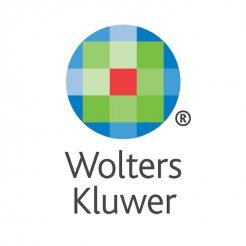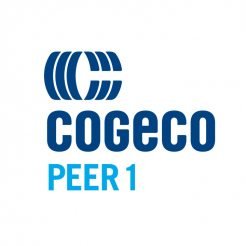
Drupal e‑commerce
Linking content, customers and commerce
At Full Fat Things we love building for growth. Anything that requires e-commerce functionality, no matter how complicated, we want to build smooth integrations.
Crafting the perfect e-commerce app is our equivalent of solving cryptic crossword puzzles or fiendish Sudoku – we love the challenge of doing it and completing the job in the neatest way possible. Many e-commerce projects are more complex than you might think, and for these we use Drupal. But if Drupal is not appropriate, we’ll recommend something else. That’s our promise: we’ll never sell you a platform or functionality you don’t need.
Ideally, you want your customers to sail through any purchase process without being made to think hard or wait. That’s what we can provide. Ultimately, our aim is that the lack of hassle will become a positive differentiator for your business.
From the simplest one-off interaction to ongoing, regular payment services, no matter how complicated, e-commerce is our thing. Our team has been building e-commerce applications with Drupal for over 10 years. Between us we have created e-commerce applications for Wolters Kluwer and Peer 1 Hosting and Citron Hygiene, to name just a few.
Why Drupal for e-commerce?
The Drupal platform includes a vast range of modules that can be used to build a unified online presence. We carefully choose the best ones to ensure your business logic, processes and approach are reflected exactly on your website and in your apps. Drupal then acts as the glue between your content, commerce and customers.
Drupal Commerce is a modular platform in its own right that integrates perfectly with Drupal content sites. If you need any of the following, we highly recommend Drupal Commerce:
- Variable access to content, including subscriptions, paywalls, metered or tiered access
- Monthly billing via Direct Debit or credit card
- Connection to other business systems and processes to enable prompt delivery or immediate access to content
- Complex shipping calculations based on product pricing and features and custom logic.
Using Drupal lets us enable business change by building complex applications. For Peer 1, for example, we successfully implemented an online metered system for users to access its cloud services, mirroring the true utility model of cloud computing and enabling Peer 1 to interact with its customers more efficiently. Meanwhile at Wolters Kluwer and Croner-i, we created systems that allow them to provide resources in multiple ways, including fulfilling digital subscriptions and buying physical products. Finally, the team at Citron Hygiene trusted us to launch a consumables shop that gave customers more control over their purchasing and marked a new level of innovation in its industry as normally the industry does not sell digitally.
Stew and the team have always been fantastic. They understand our needs and get the job done! Incredibly knowledgeable in their field — the go to experts! Highly recommend.
Laura Moore, Citron Hygiene
Building e-commerce with Drupal
Setting up or moving shop is not something to be undertaken lightly. We like to ensure we have everything organised and agreed with you before we start. That’s what we did for Wolters Kluwer, who we helped move to a deep self-service platform for its customers across its suite of products.
First, we’ll talk to you about your business, your current needs and your plans. Then we’ll identify and mould together the Drupal modules you need, including Drupal Commerce, to avoid the pitfalls inherent in using separate e-commerce and content platforms.
Drupal is renowned for great user experience. When we implement it, the result is always a seamless experience for users – both customers and staff.
Dealing with data and payments
We start every e-commerce project with the sale – your sale – in mind. But there’s a lot more to setting up an e-commerce process than sorting out prices and shipping: understanding what to do with the data you capture is vital. No one wants to fall foul of GDPR or the burdensome security requirements of PCI DSS (the Payment Card Industry Data Security Standard).
The challenge we set ourselves is to capture the least amount of data possible to make the sale, but enough to fulfil shipping and be useful for marketing. Your Drupal site can be fully integrated with your marketing tools, making that data far more valuable.
We can also advise you which technical approaches to take to minimise the burden of the wide variety of available payment options. This includes accepting credit card payments without falling under PCI DSS.
We're experienced with major payment gateways such as:
Opayo - formerly Sage
(Partner Level)

FastSpring

Stripe

PayPal

Worldpay

Paddle

Adyen
Do I need Drupal Commerce?
We’re developers, not salesmen. So we guarantee that we will never sell you a Drupal Commerce solution if that isn’t what you need, because it doesn’t help us when we’re developing your site. Instead, we may advise using Shopify or another platform if what you’re selling (and other factors, such as payment) make these a better choice.
We’ll outline the pros and cons of each approach, right down to how they map onto the nooks and crannies of your business. And then we’ll craft your choice to match your business, rather than you being forced to change your business to fit in with your e-commerce system.
If you aren’t using Drupal yet but like the sound of what Full Fat Things and Drupal Commerce can offer, we can help you with migration to Drupal.
Or contact us about any other questions you have about Drupal, Drupal Commerce or e-commerce generally.


